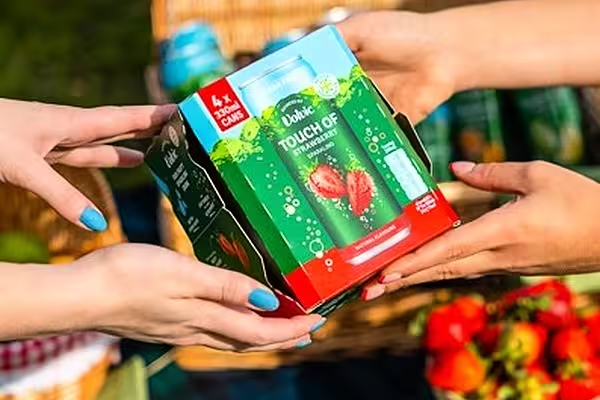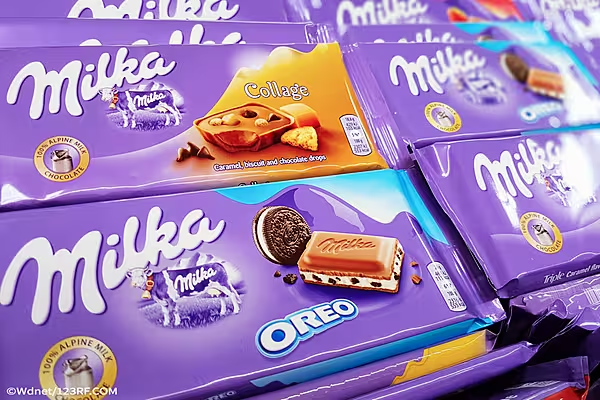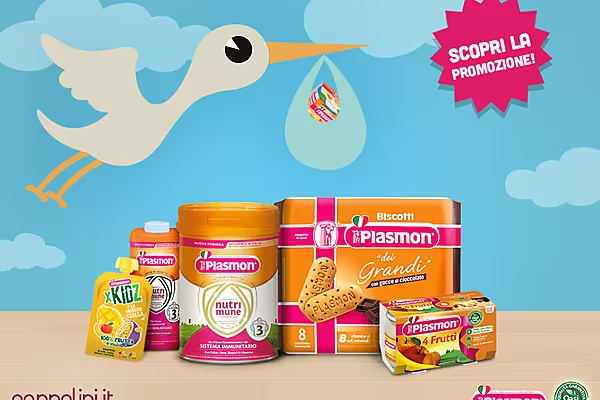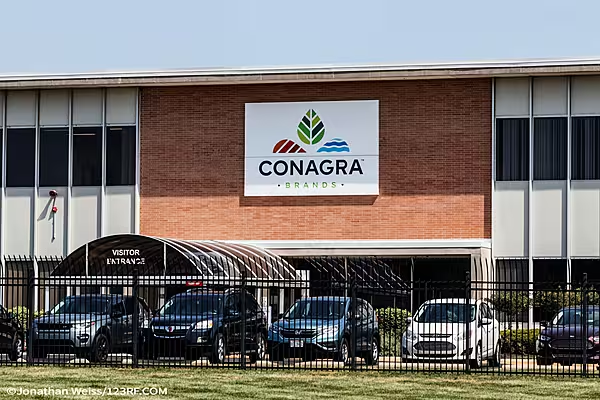Cathal Murphy, head of innovation and sustainability at Bewley’s, talks to Maev Martin about the iconic brand’s leading role in a groundbreaking global innovation for sustainable coffee production.
Bewley’s has supported a world-first Integrated Open Canopy (IOC) system, which ensures that 50% of a coffee farm consists of conserved or restored forest habitat.
It is also backing a project using solar energy and biofuel to dry its coffee, rather than clearing forest for firewood to power industrial coffee dryers.
One of the world’s leading conservationists, Dr Jane Goodall, founder of the Jane Goodall Institute who found global fame for her work with chimpanzees, has hailed Bewley’s for its role in what is regarded as a global breakthrough in sustainable coffee production.
“I applaud Bewley's for being the leading company supporting sustainable coffee grown using the groundbreaking IOC method,” she said.
“This programme, which pioneers IOC and industrial-scale renewable energy in coffee processing, is aiming to set an unprecedented standard for sustainability in coffee worldwide.
“Bewley’s-backed innovations in Honduras, Central America, will lead coffee’s response to the climate emergency.
“Coffee contributes to the destruction of the tropical forest where it is grown, and beyond the damage to the ecosystem, farmers are often poorly paid, causing millions to live in poverty.”
Cathal describes Jane Goodall’s reaction to Bewley’s involvement in the Integrated Open Canopy initiative as “the icing on the cake for us. It is a really positive endorsement and we would love the rest of the industry to look at methods like this because we believe it is the future for coffee farming and sourcing.
"In addition, we hope that this approach to commodities will reach other parts of the food industry as well. We now have several universities on board with this approach, as well as businesses, as this is their preferred coffee, and they are starting to tell the Bewley’s story of involvement in the IOC system.
“Typically, coffee companies cut down a section of wood to drive power for their operations. While some companies are looking to move into this area, our involvement in the IOC system makes us a trail blazer and Bewley’s are happy to be blazing a trail for the rest of the industry.”
Both Dr Goodall and Bewley’s have endorsed the Mesoamerican Development Institute (MDI) model for sustainable coffee production.
It produces Subirana coffee, the product of patented technology designed to reduce greenhouse gas emissions and restore forest habitat and biodiversity.
Bewley’s direct funding and coffee purchases from the Comisuyl co-op in Honduras is enabling investment in IOC farming.
And because growing coffee at high altitudes usually means clearing forest to provide wood for coffee dryers, Bewley’s has also backed the Café Solar project for the scale-up of carbon-neutral coffee processing, powered by solar energy and biofuels.
Comisuyl Co-operative
According to Cathal Murphy, Bewleys are the only coffee company that is selling coffee produced by the IOC system.
“IOC is driven by the Mesoamerican Development Institute which comprises academics who are handpicked from the world of academia across the US and Canada,” he says.
“A company in Canada called Merchants of Green Coffee is involved in IOC, but Bewley’s is the first coffee company to take it on and sell coffee that has been produced as a result of the IOC system.
"We have been carbon neutral as a business since 2008, and in 2013 we moved our carbon project to Comisuyl, a village in the central highlands of Honduras where they had been struggling with an airborne fungal disease specific to coffee which affected the health of coffee trees and yields.”
With financial resources from Bewley's, field-based agronomists were engaged to assist in the development of educational coffee programmes that would help the farmers to improve quality and yields.
“Since our investment in this project, the co-operative has moved away from shade trees and towards a new way of farming, i.e., the Integrated Open Canopy system, and this has resulted in higher yields for farmers and has led to numerous benefits for the environment,” he says.
“This transition was made possible by our continued investment in the co-op since 2013.
"Our long-term relationship with the Comisuyl co-operative has meant that they have been able to invest in green energy and they have increased biodiversity and productivity.
"Co-op partnerships in Ireland allow farms to plan and gives them security. Those types of partnerships are just as important to coffee farmers as they are to beef and dairy farmers.”
Subirana Coffee
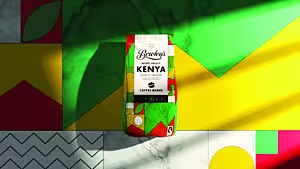
Bewley’s introduced the first Fairtrade Certified coffee to Ireland in 1996 and Cathal maintains that Bewley’s Subirana coffee, which is produced by the Comisuyl co-operative, “points the way to the future” for the industry.
“This coffee is available in the Irish market and we have 15 customers who have moved over to it this year,” he says.
“Subirana is available in the foodservice sector. We will consider rolling it out to retail, possibly next year, but the focus is on foodservice for now.
"It is a Fairtrade coffee, organic, and comes with guarantees about biodiversity and clean energy.
“This is the first coffee recognised by researchers to go beyond shade canopy to restoring and conserving actual forest habitat on farms.
"It also eliminates greenhouse gas emissions in drying and milling.
"It is regenerative and creates an ecological balance inside and outside the farm.
"The approach has not only increased coffee yields and provided economic opportunities for farmers, but has also played a pivotal role in biodiversity conservation and landscape restoration.
“There is only one type of sustainability in a supply chain industry – it must be profitable for the farmers, nurture the community and be good for the environment.” Cathal describes anything that does not achieve all three as “an a la carte solution” and he believes that consumers need to educate themselves as to the ecological cost of their purchases.
Sustainability Strategy
Bewley’s sustainability strategy has four pillars – ethical sourcing, reducing their environmental footprint, helping consumers to make better choices, and energising the Bewley’s team to ‘take ownership’ of sustainability.
“The Comisuyl co-operative project and the resultant Subirana coffee fits within our first pillar, which is to empower farming communities in our purchase of tea and coffee," he says.
"For us, Fairtrade is the gold standard when it comes to ethical sourcing as it gives farmers a fair wage, backs communities, and looks after the environment.
"All coffee sold under the Bewleys brand is Fairtrade and the benefits of Fairtrade is that it builds relationships over time and allows us to get involved in projects like the IOC system and the creation of Subirana.
"We also have a wonderful project with the Soppexcca co-operative in Nicaragua. This has been a 20-year relationships for us, which was formed out of Fairtrade.
"From day one, we committed to an ethical standard and over time we built projects that give more to those communities.”
The second key pillar of Bewley’s sustainability strategy is lessening its environmental footprint.
“We offset our carbon and we aspire in the future to move to a net zero position,” he says.
“When we talk about net zero, it has to be balanced with commercial realities, so it is important that we utilise our capital expenditure to the best of its capability.
"In the meantime, we are putting in lots of measures to lessen our environmental footprint through our sourcing projects and our packaging projects.
"We have moved to 100% recyclable packaging and we have engaged in various efficiencies across our business to lessen our carbon impact as well.
"We are a zero waste to landfill business, so we also monitor the waste in our business very closely.”
The third aspect of Bewley’s strategy centres on its employees.
“This revolves around energising our own people in the business to take ownership of sustainability,” says Cathal.
“We work hard to ensure that everyone in our business is an ambassador on sustainability.
"Our best example of this is Ireland’s longest running charitable partnership with the Irish Hospice Foundation.
"We raise well over €2 million every year for this charity and that is down to our team getting involved alongside the great volunteers in the Irish Hospice Foundation.”
The fourth pillar is about helping consumers to make better choices.
“We want to empower our consumers to make the right choice by picking up a Bewley’s product,” says Cathal.
This year, Bewley’s became the first major Irish coffee brand to partner with Café Femenino, championing an initiative which has sparked a rise in women’s incomes and protection in previously male-dominated and impoverished communities.
“Café Femenino has been a great success,” he says. “Since we launched it, several of our customers are now picking that up as their preferred coffee and a percentage of those purchases go back to those 1% of coffee farms and coffee co-ops globally that are owned by women.
"The research suggests that co-op operations work better when the money is managed by women, so we want to encourage more women to get into this industry to improve the viability and quality of coffee overall.
"At the moment, Café Femenino is the preferred coffee for 15% to 20% of our customers and we are finding that the development of the Café Femenino and Subirana brands are stories that our customers want to be able to tell their customers, both in retail and foodservice.”
What B Corp Means
Bewley’s has recently become the first Irish coffee company of scale to achieve B Corp certification, which measures a business’s positive impact on society and the environment.
“Our sustainability plan has been endorsed through continued Bord Bia Origin Green membership,” says Cathal.
“We became a B Corp company this year and we ran some advertising to talk about our B Corp status.
"We understand that knowledge is limited among the general public when it comes to B Corp.
"However, when you look at brands like Patagonia, Ben and Jerry’s, and Tony’s Chocoloney, they have created some great messaging around their B Corp status, so we have quite a bit of work to do to get our message out to the market about what B Corp status means.
"Our investment at origin is the main reason we acquired B Corp status, so a key focus for us in 2025 is to communicate what BCorp status means and why we got it, and to talk more about our ethical sourcing and why Bewley’s products are the ethical choice for consumers and businesses.”
Read More: New Employment Permits And Their Impact On Retailers

